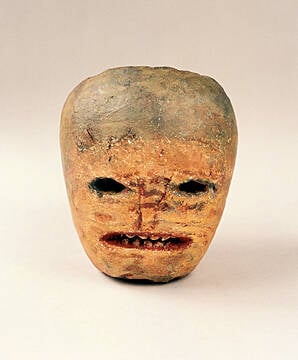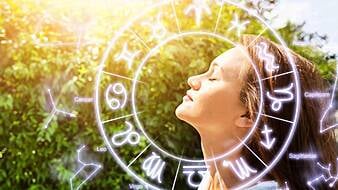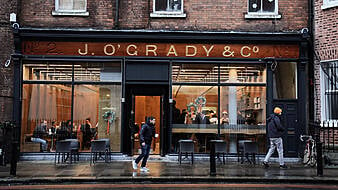Halloween is not all about cauldrons, broomsticks, witches, and pumpkins.
On the island of Ireland, it is a tradition steeped in ghost turnips, púcas, and fortune-telling, and a global pandemic is not going to change that.
The ancient festival is going digital this year and is laying claim to Ireland being the birthplace of Halloween.
The three biggest Halloween festivals on the island – Derry Halloween, the Púca Festival and Bram Stoker Festival – have all moved online this weekend to bring supernatural surprises to people in the safety of their homes.
Halloween began as the ancient Irish festival of Samhain, the National Museum of Ireland’s keeper of the Irish Folklife Division Clodagh Doyle said.
Its roots can be traced back more than 2,500 years ago to the Celts.
People would disguise their identity and get up to tricks. It was a night of mischief.
Samhain, or summer’s end, was a celebration of fire and feasting that marked the end of the season of light and the beginning of the dark days of winter.
It was regarded as the time where spirits of the dead would be in limbo and might move between the worlds of the living and the dead.
Participants worshipped the dead, wearing costumes and masks to disguise themselves as a way of warding off evil spirits.
“It’s very strongly associated with death and it always has been,” Ms Doyle said.
“People left out food for their departed loved ones.
“They’d also wear masks. People would disguise their identity and get up to tricks. It was a night of mischief.”
To scare people, people made lanterns out of turnips, they were pretty scary.
Ms Doyle said the modern practice of dressing up at Halloween is rooted in these pagan and Celtic customs, as is the tradition of lighting bonfires, which began with clans and communities gathering to light huge ceremonial Samhain fires.
Long before people were carving pumpkins, people in Ireland were carving ghoulish faces into turnips and potatoes to create the original jack-o’-lanterns.
“To scare people, people made lanterns out of turnips, they were pretty scary,” she said.
“If you think about it, they’re probably more skull-like. They’re not as happy as the pumpkin really.”
Festivals
Niamh Lunny, creative producer of the Púca Festival, said they were disappointed not to be able to run the arts and folklore festival, which is led by the shapeshifting spirit of the Púca – the Irish word for ghost.
“We had to re-plan and reimagine how we could engage with our audiences," she said.
They have done so by creating a short film to be aired online on Halloween night, October 31st, which includes a pre-recording of the lighting of the Samhain fires.
Organisers have also developed a content-driven social media campaign to tell the story of Halloween’s origins in Irish and Celtic traditions.
“The aim of the short film is to try and build that message that Ireland is the home of Halloween, that this is where it started,” Ms Lunny said, adding that the intention is to entice people to celebrate Halloween in Ireland and experience its authentic origins.
“Through social media channels, we’re highlighting the games that would have been played at Halloween, a lot of traditions that go with the festival and are encouraging people to explore them themselves in their own homes,” she said.
“We’re encouraging people to dress up as well, why not? It’s not like we’ve lots of other things to do.”
As people cannot gather and celebrate as normal, Fáilte Ireland, the organiser of the festival, is also calling on every household to light a lantern in their home on Halloween night.
Derry Halloween will have spooky tales for Little Horrors to watch, Samhain Sessions for music lovers, and online tutorials in everything from broomstick-making to cocktail-shaking.
In Dublin, home to the Bram Stoker event, this year’s celebration of Stoker and his famous creation Dracula will focus on interactive and fun experiences for all ages online.







